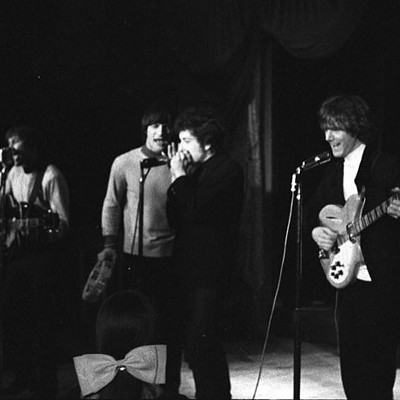Despite, or perhaps because of, its success, Legend left behind it a host of problems.
The millions of dollars that the record (and other Marley albums) have brought in have sparked a tug of war between Marley's musicians and the songs' rights holders; numerous lawsuits have been filed by members of the Wailers against Island and Universal. In 2006, a justice in London's High Court dismissed a lawsuit brought by Aston Barrett against Island seeking $113 million for royalties and songwriting credits.
"There was a lot of hard work from the Wailers band members to help produce Bob's music that just never got credited," says guitarist Anderson, who, like Barrett, recorded extensively with Marley and appears on Legend cuts like "Could You Be Loved." (Neither Chris Blackwell's nor Universal's spokespersons responded to requests for comment about the allegation.) Meanwhile, Barrett's and Anderson's camps have been involved in lawsuits over the right to perform under the Wailers name, and today each musician leads a competing version of the group. Anderson's group is called the Original Wailers, and Barrett's band is known simply as the Wailers.
Even Legend's music itself is not without its critics.
Writing for Slate, Field Maloney called the album a "defanged and overproduced selection of Marley's music. Listening to Legend to understand Marley is like reading Bridget Jones's Diary to get Jane Austen."
For their parts, Blackwell calls the album "wonderful," Anderson says it is "likable" and Cliff is ambivalent. "I have not listened to that record, really," he says.
While it's unfortunate that Marley never saw success on the level of Legend, Robinson speculates that the album might never have been made on his watch.
"Greatest-hits projects, the ones that really work, unfortunately work mainly because the people are dead," he says. "These kinds of artists, left to their own devices, would have a different greatest-hits. A living artist will tell you that the greatest song he's ever written is the one he's last written."
Marley's son Julian has another theory: "Why do a greatest-hits album when you're still here doing great things?"
And yet musically, it's hard to argue that Legend isn't an iconic work. The songwriting on tracks like "No Woman, No Cry" and "Redemption Song" is so compelling that the works transcend genre -- as Clapton's success with "I Shot the Sheriff" demonstrates.
It's also worth noting that Robinson didn't intend for the record to be comprehensive; he just wanted to get Marley's music onto stereos worldwide. In doing so, he did something bigger: He helped make Marley's image and message ubiquitous. Today you'll see the artist's face on beach towels and his lyrics on posters in countries from Russia to Chile.
And ironically, over the past three decades, rebelliousness and violence have become a routine method of marketing pop stars. Robinson may have softened Marley's image, but he didn't whitewash it. Marley remains an international touchstone of rebellion, known as much for his social and cultural convictions (and his affinity for good bud) as for his musical oeuvre.
Though Legend may be the preferred dinner-party soundtrack for polite company, it also has been the gateway drug for generations of Marley aficionados, who heard something in the record and wanted more.
ROCKS OFF'S GREATEST HITS
The Ask Willie D Archives Houston's Top 10 Hipster Bars, Clubs & Icehouses 2014 Today's 10 Most Promising Young Metal Bands Hip-Hop's Seven Best Breakup Songs Houston's Top 10 Rooftop Bars and Lounges
Follow @hprocksoff






